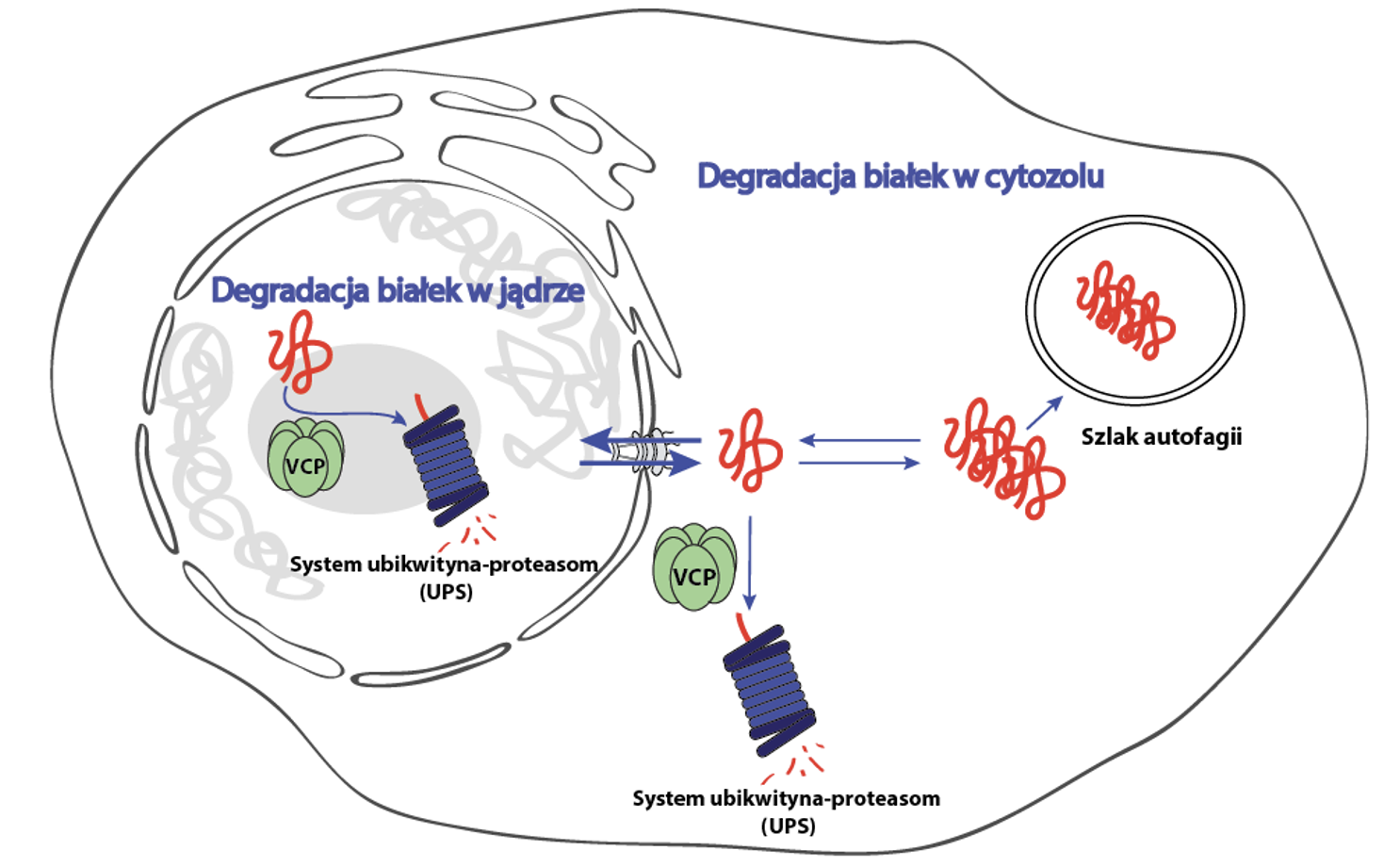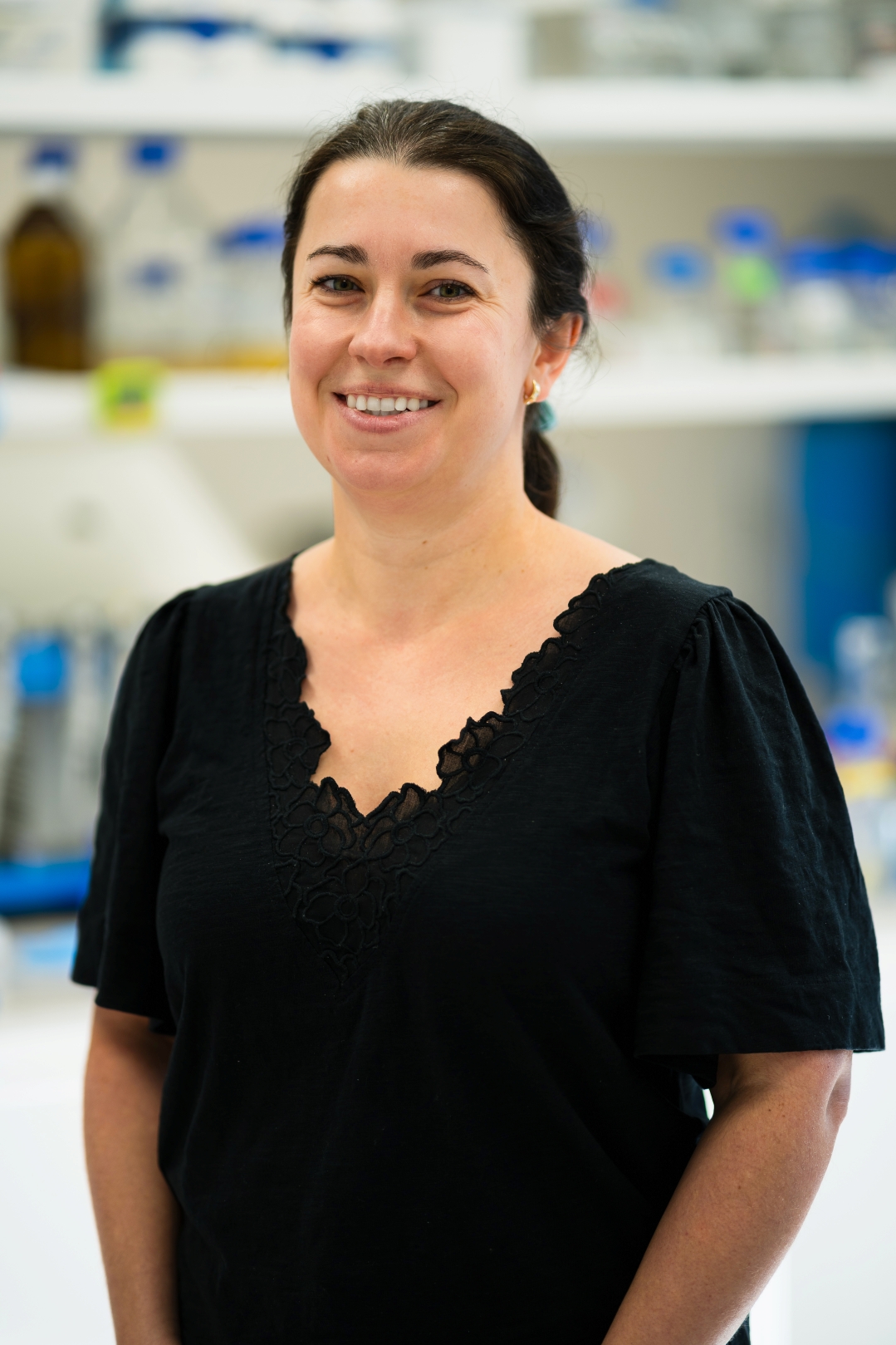New Research Group: Laboratory of Cellular Proteostasis Led by Dr. Lidia Wróbel
The molecular foundations of neurodegenerative diseases, such as Alzheimer's, Parkinson's, and Huntington's, will be the primary research focus of a new laboratory at the International Institute of Molecular and Cell Biology in Warsaw.
Laboratory of Cellular Proteostasis is headed by Dr. Lidia Wróbel, a molecular biologist with postdoctoral experience from the University of Cambridge. The new research group will analyze, among other things, the processes of protein quality control and degradation in mammalian cells, as well as the communication between protein degradation systems located in different cellular compartments. The aim of their work is to develop new therapeutic strategies targeting the treatment of neurodegenerative diseases.
“Our research aims to understand how the systems responsible for protein quality control function in nerve cells and how their disruption leads to the accumulation of toxic protein aggregates that contribute to the development of neurodegenerative diseases. By deepening our understanding of these processes, we can pave the way for the development of new targeted therapies that will restore proteostatic balance and help treat currently incurable diseases, such as Alzheimer's and Parkinson's," says Dr. Lidia Wróbel.

Neurological disorders are a leading cause of physical and cognitive disability worldwide. As societies age, the number of cases is rapidly increasing and is expected to double over the next two decades. Despite a century of intensive research, there are still very few therapies for neurodegenerative diseases. Those that are available are relatively ineffective and remain very costly. Therefore, developing new potential therapies is crucial. Basic research plays a vital role in this endeavor. The precise molecular mechanisms underlying neurodegeneration are still incomplete, and gaps in our knowledge of the fundamental neurobiology present a significant obstacle to discovering potential therapies.
In many patients suffering from neurodegenerative diseases, toxic protein aggregates are found in nerve cells, leading to neuron degeneration. The mechanisms behind the formation of these toxic protein substrates and their impact on disease progression remain unclear. Dr. Lidia Wróbel's team will seek to answer these questions by studying how protein degradation systems contribute to maintaining cellular health and preventing neurodegeneration. The laboratory will conduct research using advanced cell models and brain organoids, utilizing cutting-edge technologies such as CRISPR/Cas9 for genome editing, mass spectrometry, and fluorescence microscopy.

Dr. Lidia Wróbel is a biologist focusing on the molecular mechanisms of neurodegeneration. She earned her master's degree in biotechnology at the Warsaw University of Life Sciences (SGGW), conducting her research project at Ghent University in Belgium. In 2009, she joined Prof. Agnieszka Chacińska's laboratory at the International Institute of Molecular and Cell Biology in Warsaw to pursue her Ph.D., where she focused her research on mitochondrial biogenesis. In 2016, she was awarded the EMBO Long Term Fellowship and joined Prof. David Rubinsztein's laboratory at the University of Cambridge to study the lysosomal autophagy pathway in the context of neurodegenerative diseases. After completing her postdoctoral studies in 2024, she established her own Laboratory of Cellular Proteostasis at the International Institute of Molecular and Cell Biology in Warsaw.

